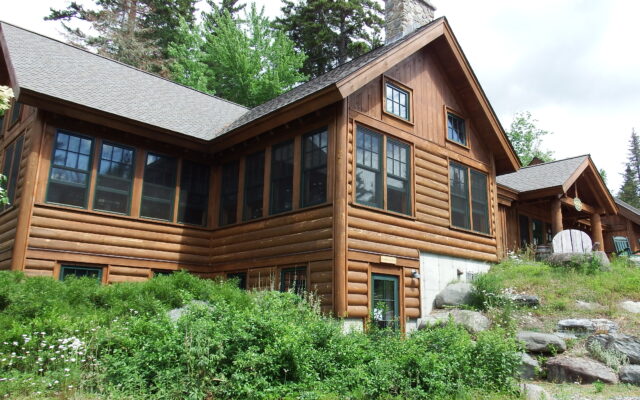
How the Appalachian Mountain Club created a 4-season destination in Maine
This first appeared in the October 2021 issue of Bangor Metro Magazine.
By Bob Duchesne
The Maine Woods Initiative is an expansive, expensive project.
It’s doubtful any organization without the history and experience of the Appalachian Mountain Club could pull it off. In fact, it’s fair to ask if even the AMC could accomplish it. It’s a question the organization asked itself in a just-completed 15-year assessment of progress.
The short answer is, yes, mostly.
Soon after the turn of the century, International Paper decided to divest a million acres of its woodland in Maine. One parcel of roughly 35,000 acres was located within a region known as the 100-Mile Wilderness – an area in Piscataquis County bisected by the Appalachian Trail, containing free-flowing rivers, undeveloped lakes, and challenging peaks. About that same time, AMC was asking itself, “What’s next?”
AMC was established in 1876, and it was instrumental in the creation and conservation of the White Mountain National Forest. Over the next 120 years, it developed lodges and hut systems throughout the northeast. When the IP parcel went on the market, AMC recognized its ecological and recreational value, and bought it in 2003. That was the kickoff for the Maine Woods Initiative. Acquisition of more parcels boosted the acreage to 75,000, and AMC is currently in line to finalize an additional parcel, boosting ownership to just over its goal of 100,000 acres.
Mainers are inherently distrustful of people from away taking over any part of “their” woods. Although Maine has its own AMC Chapter with 6,500 members, the majority of AMC members live in the urban corridor between Massachusetts and Washington, D.C. AMC knew from the get-go that it would have to earn local respect and trust – an uncomfortable lesson it had already learned in New Hampshire.
Thus, AMC hired local. It recruited Maine residents to work with towns and civic organizations to ensure the initiative would fit right into the Piscataquis County community. It contracted local. It bought local. It worked with snowmobile clubs to assure traditional trail access, while specifying non-motorized use for ecologically sensitive areas.
AMC logged. Rather than treat the forest as a primeval parcel to be left unsullied by the ax, the organization developed a forestry plan that would reinforce the health and diversity of its woodlands. They have remained part of the wood basket upon which the northern Maine economy depends, using a model that prioritizes sustainability over bottom-line profits. AMC quickly became an integral part of the Piscataquis County economy.
AMC acquired and upgraded three traditional sporting camps, investing millions in renovations. One of the three – Little Lyford – had operated on the site for over 140 years before getting its much-needed facelift. Gorman Chairback Lodge and Cabins on Long Pond began its existence as a single-household private camp in 1867. Medawisla on Second Roach Pond, east of Moosehead Lake, also needed facility upgrades. Today, all three AMC facilities offer modern, ecologically-friendly amenities without sacrificing the rustic feel that has always made sporting camps popular.
Then AMC took it a step further. The organization created a stewardship plan that segmented its 75,000 acres according to best use. About a third was set aside as ecological reserves, protecting and restoring habitat for wildlife and fisheries. A significant portion was designated for sustainable timber harvesting. A system of cross-country ski trails was established to create a lodge-to-lodge winter experience, while accommodating traditional snowmobile routes through the region.
It was a grand experiment, and it has worked for the most part. Pre-COVID, the wilderness lodges cumulatively racked up 82,000 bed nights. Post-pandemic visitation is rebounding. If there is a definable weakness in the initiative, it’s that many Mainers don’t realize what they have right here at home. It’s common to see license plates from Massachusetts to Maryland in the parking lots, far fewer from Maine. Partly, it’s a marketing challenge, since many Mainers already have their own ideas on how to experience the remote woods and waters of the state. Most probably don’t perceive the AMC experience as unique. But it is.
AMC has created a four-season destination in Maine’s most economically-stressed county. In a tourism region that also contains Moosehead Lake, AMC now accounts for 5-7 percent of the area’s hospitality jobs. Few accommodations deep in the Maine woods can match its modernized lodges. There are 130 miles of trails, many useable year-round. And, to top it off, the International Dark-Sky Association certified the entire AMC acreage as New England’s first Dark Sky Park earlier this year – far, far, far from the city lights. There’s a unique experience available 24 hours a day, 365 days a year.